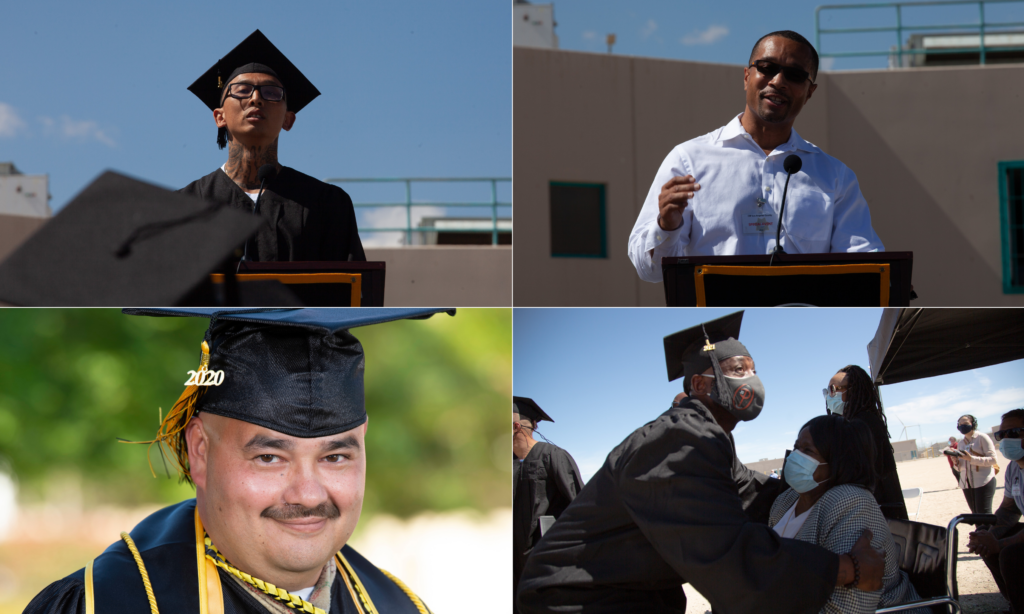
Photo by Allison Shelley for EDUimages
More adults in the United States are obtaining degrees or other credentials after high school but not quickly enough to meet the goals set 16 years ago by an independent, private foundation focused on access to higher education.
The Lumina Foundation set a goal in 2008 as part of the Stronger Nation project to have 60% of adults in the country obtain a degree or other credentials beyond high school by 2025. Although officials predict the goal won’t be reached in time, progress has been made.
“We hear so often that higher education is in decline. We hear so often that students don’t need to go to college,” said Ted Mitchell, president of the American Council on Education, during a live webinar Wednesday. “You could expect the data to show some of that, but it didn’t. It showed just the opposite. It shows college matters.”
The foundation released 2022 data, the most recent available, that shows 54% of 25- to 64-year-olds hold college degrees, certificates or industry-recognized certifications, nearly a 16 percentage point increase since 2009.
“Some of that is attributed to finding a way to measure and then add short-term credentials, but a substantial portion, about 8 and a half percentage points, is the rise in the attainment of bachelor and associate degrees,” said Courtney Brown, Lumina’s vice president of strategic impact and planning and director of the A Stronger Nation project.
The No. 1 action the nation can take to reach the goal of 60% is to increase graduation rates, Mitchell said. One strategy is to do a better job of reaching out to people who have some college but no degree.
Brown said there are about 40 million people in the country with some college and no degree.
“We have to ensure those people don’t have a broken promise,” Brown said.
California is slightly above the national average at 55%, ranking near the middle compared with other states. Nevada has the lowest percentage of adults with degrees or certificates, nearly 43%, according to 2022 data, and Washington, D.C. has the highest at about 75%.
The District of Columbia, Puerto Rico, and 42 states all saw an increase in adults having degrees, data show. In 2009, less than 38% of adults ages 25 to 34 had degrees, and in 2022 that’s increased to about 56%. A big part of the increase is because of the Latino population, Brown said. The number of Latino Americans holding degrees went from about 19% in 2009 to about 34%, according to the most recent data.
But there are still wide gaps between white people earning degrees after high school compared to people of color.
“We’re getting closer and closer, but we’re still seeing stubborn equity gaps with Black and Hispanic Americans sitting on one side of the spectrum to white and Asian Americans on the other,” Brown said during a media call.
The national percentage of adults ages 25-64 with either an associate, bachelor’s, graduate or professional degree is 46.5% and all racial groups except white (52%) and Asian Americans (67%) fall below that percentage, data show. Nearly 30% of Hispanic Americans have a degree, while about 36% of Black Americans and about 27% of American Indian or Alaska Natives do.
In California, according to the data, the percentage of Latino Americans who obtained a degree is even lower, nearly 24%. About 40% of Black Americans obtained a degree, compared with 30% of American Indians or Alaska Natives, 67% of Asian Americans, and about 59% of white Americans, according to data.
To look at data by county in California, go here.
NOTE: EdSource receives funding from several foundations, including the Lumina Foundation. EdSource maintains sole editorial control over the content of its coverage.

)
